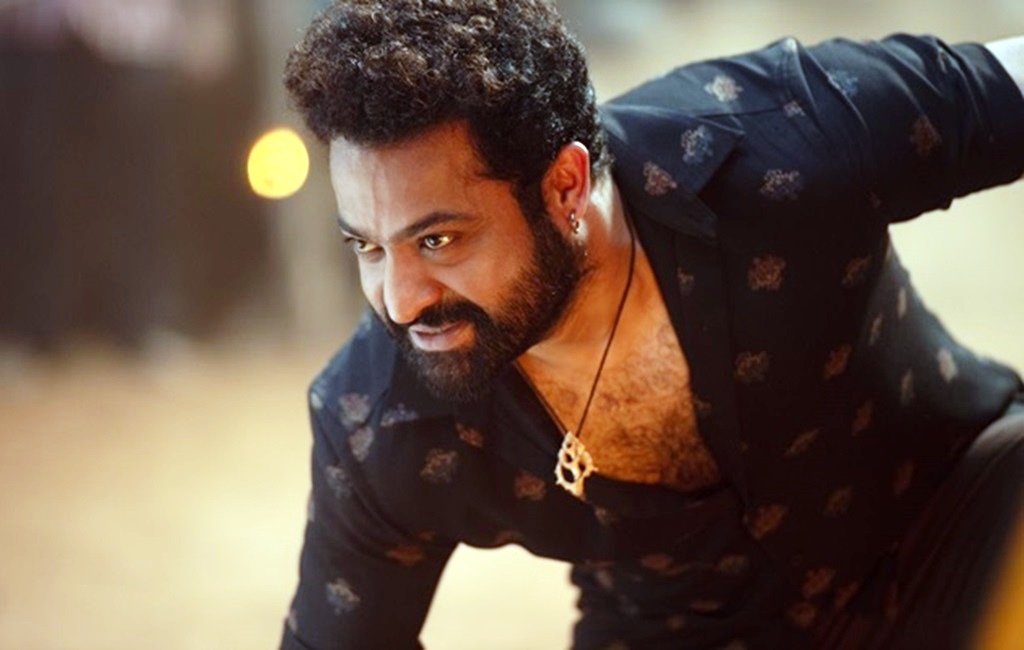After Kalki, Devara is the most popular film of the year. For a number of reasons, this picture has generated a lot of buzz. This is NTR’s comeback following the critically acclaimed RRR, Janhvi Kapoor’s first Telugu role, and Saif Ali Khan’s first villain role.
In the year 1996, the plot opens with a police officer (Ajay) learning about the NTR’s Errasamudram and Devara from Singappa (Prakash Raj) while on the trail of a criminal.
The story then jumps to the 1970s, when Devara (NTR) is the gang leader of a band of pirates who band together to steal goods from ships. By accepting contracts from Muruga (Murali Sharma), they are able to support themselves.
But after something happens, Devara decides he’s had enough of assisting crooks like Muruga and plundering cargo ships. Bhaira (Saif Ali Khan) and the rest of the squad aren’t happy about this choice. Their confrontation with Devara establishes the story’s foundation.
Highlights of performances: There is almost nothing bad to say about NTR’s talents, and his dual-shaded performance is really remarkable. When the right occasion presents itself, directors should make good use of his talent; he is among the best actors working today. NTR was good in his role, but he could have been even better.
In her first film in Telugu, Janhvi Kapoor made a cameo. Her plot holes and lackluster writing make her look like she’s there just to fill out the heroine cast. Even then, her appearance is brief and occurs mainly in the second half.
With just a few lines to his name, Srikanth has a far too little role. Unused Chacko and Prakash Raj’s narration of the flashback are both problematic.
Even though the female characters aren’t household names in Telugu, they were excellent in their roles. Talluri Rameshwari made a long-awaited return as Jogula, while Shruthi Marathe is excellent as Devara’s wife.
It is wise to choose Tarak Ponnappa as Bhaira’s son. With very little screen time, Murali Sharma and Abhimanyu Singh come across as bit players rather than main actors.
Ajay gives a solid performance as the police officer who pays attention to Prakash Raj’s story.
Despite high hopes for their comedic performances in the second half, Hariteja and Getup Srinu find themselves utterly underutilised in this overlong picture that features an excessive number of characters.
Technical: The visually stunning setting of a village and lake serves as the backdrop for the most of the story. Along with it, the CGI is sufficient.
When needed, the excellent background music really lifts the spirits. Having said that, the songs fall short. As previously stated, one of the album’s four songs was cut entirely and never aired during the closing credits.
The only visually appealing song is Chuttamalle. The highly anticipated Ayudha Puja song falls flat due to its muddled lyrics and distracting melodies.
Analysis: The several characters in the film are underdeveloped, which is the biggest issue. Why bother with so many characters if they all act the same? Casting Chacko and other excellent actors but giving them only a few lines of dialogue seems pointless.
The plot is also lacking, and the picture as a whole is dependent on its visual effects and buildups. When the on-screen material is lacking, the visual richness and background music do little to elevate the entire experience.
An epic film like this doesn’t have any “goosebumps” moments. Character introductions and action sequences fill the first half of the film, building to the real hook point just before the intermission. Prior to that point, the plot moves at a leisurely pace, with the only action sequences involving the pirates at sea.
An adequate intermission sequence sets the stage for an uneventful second half, which, thanks to the revelation of a new plot point, offers some welcome relief. But it doesn’t make this section any more interesting or entertaining. It’s as if you’ve spent some time in the fire and are now riding the frying pan. Not even Getup Srinu, who appears in the second half, serves as a suitable comic relief.
Only three or four little sequences and a song feature Janhvi Kapoor, and her appearance comes in the second part of the film. She fails to provide any interesting or compelling character development and is ultimately uninteresting. The expectations were too high for her.
The focus in the second half is on NTR’s secondary character, which is alright. But the ending is so overdone that it jumps right out of Bahubali Part 1. At the conclusion of Bahubali: The Beginning, “Why did Kattappa kill Bahubali?” The first part concludes with an identical query.
It would appear that numerous previous films served as influence for the entire picture. The traditional clothing that Janhvi wears in the village scenes is similar of Samantha’s outfit in Rangasthalam. The ring fights in the second half are reminiscent of HanuMan sequences. The dynamic between Devara and Bhaira is reminiscent of Bahubali and Bhallaladeva.
The film’s conflict point is solid, but it falls flat in terms of making the audience feel what they want. Everything that happens on television seems more like data than anything that will have a profound impact on the viewers. This reflects poorly on the research and preparation that went into writing the script.
In general, the story and characters in the film don’t do anything to stand out. In terms of plot, this picture is marginally superior to Acharya; yet, the latter had have better musical numbers. A huge letdown is the music in Devara. Those who can sit through a lifeless action film might be the only ones who enjoy it. Bloodshed and battle scenes have a greater impact on the audience than any other aspect of the film.
Movie: Devara
ibomma Rating: 3/5
Cast: NTR, Saif Ali Khan, Janhvi Kapoor, Shruthi Marathe, Prakash Raj, Srikanth, Shine Tom Chacko, Talluri Rameshwari, Murali Sharma, Abhimanyu Singh, etc.
Cinematography: R. Rathnavelu
Editing: Sreekar Prasad
Music: Anirudh Ravichander
Produced by: Sudhakar Mikkilineni, Kosaraju Harikrishna
Direction: Koratala Shiva
Released On: 27 September 2024

